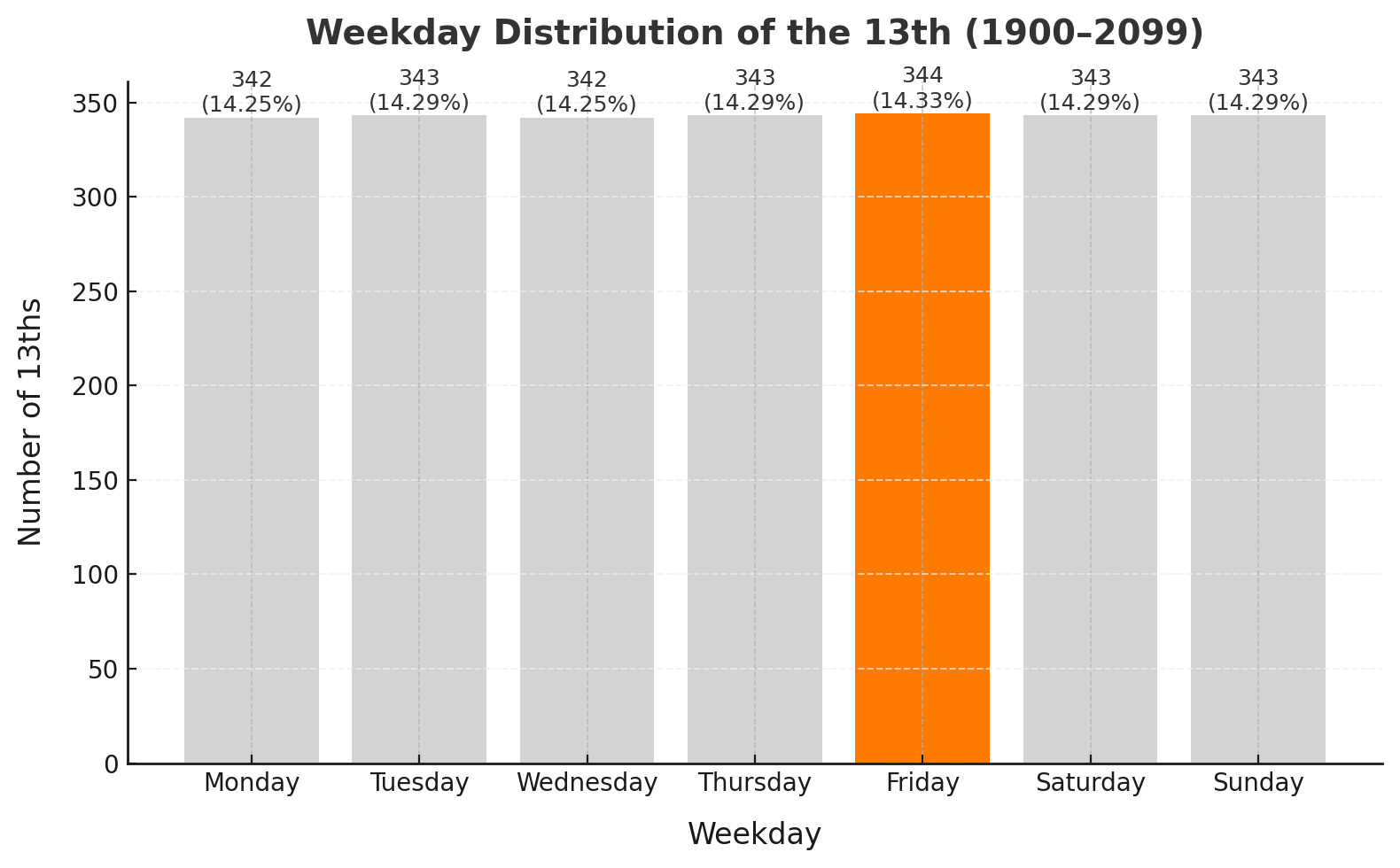
OC. I computed the weekday for every 13th of every month from 1900-2099 using the Gregorian calendar and plotted the distribution.
Results (n = 2,400 months):
- Monday – 342 (14.25%)
- Tuesday – 343 (14.29%)
- Wednesday – 342 (14.25%)
- Thursday – 343 (14.29%)
- Friday – 344 (14.33%)
- Saturday – 343 (14.29%)
- Sunday – 343 (14.29%)
Why this happens (short version): calendar arithmetic + leap-year rules skew the weekday distribution of the 13th ever so slightly toward Friday.
Data & code: GitHub Gist
Posted by Interesting-Sock3940
7 comments
But is it statistically significant? I need to know that p < 0.05.
The calendar runs on a 400-year cycle, so doing this for 1900 – 2299 would be more appropriate. And the results are 688 Friday; 687 Sunday and Wednesday; 685 Monday and Tuesday; 684 Saturday and Thursday.
But 2100 – 2299 actually has more Wednesday the 13ths than any other day!
Source: I ran OP’s code with the years changed.
Ugh just my luck – I was born between those two dates.
I just wish we would transition to the international fixed calendar.
So the fact that the following happened on a Friday the 13th was just statistically predictable:
>The association of Friday the 13th with bad luck is often linked to the arrest of the Knights Templar on October 13, 1307, when King Philip IV of France ordered their capture, leading to accusations of heresy and their eventual downfall. This event has contributed to the superstition surrounding that date, although the fear of Friday the 13th itself likely originated from other cultural beliefs.
So we’re re-doing known maths results with a simulation in an inaccurate version (the calendar doesn’t repeat every 200 years, you need 400 years) in an AI polished overview now?
Sad.
I hate that you have sunday on the wrong side of the week.
I know this is a gif vs gif level annoyance, but goddamnit, the week starts on Sunday, ends on Saturday.
Comments are closed.